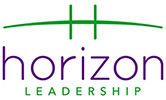Simon Sinek, author of Start With Why, is one of my favourite thought leaders. This quote of his spurred me to reflect on both the power and vulnerability of standing in the place of "I don't know". "When we say what we don't know, it increases the likelihood that someone who does know will offer to help."
As a leadership coach, I work with people as they strive to define and build their leadership brands. A big part of what they work on is how to present themselves in a way that creates credibility, influence, authenticity and value add to those they work with. We often explore the vulnerabilities they feel as a leader. The issue of handling what to do when they "don't know" what to do, what to say, or how to interact emerges frequently in the coaching work.
Given that, here are some thoughts on the opportunity and challenge that lives in standing in "I don't know." It's often easier to access the awareness of the vulnerability of this state. This is the place where the inner voices emerge to sabotage ones confidence with limiting beliefs. However, exploring how "I don't know" can be a powerful way of building connections, authenticity and deeper understanding with those you lead and work with is an opportunity. It may be edgy work and it will take practice to hold this perspective, yet it is worth it.
These are just some of the beliefs related to each perspective that I hear when working with clients when "I don't know" shows up. You may experience your own beliefs so this might serve as a jumping off point.
It's vulnerable to say "I don't know" because:
- it makes me look less credible
- I'm expected to know and have the answers
- people won't trust my judgement or experience
- I disappoint people that I aim to serve and support when I can't provide answers to help them
- I'll be seen as a not good enough in the eyes of others
- people might ignore me or see me as irrelevant
- people might think I don't care
Conversely, it's powerful to say "I don't know" because:
- it's honest and authentic
- is the responsible thing to do
- it makes me more real and accessible to others
- it is a form of confidence to be clear about what I know and what I don't
- it creates space for others to step up and share their wisdom, advice or knowledge
- it creates opportunity for dialogue and sharing
- leaning into others is a powerful way of eliminating loneliness and isolation versus "faking it til you make it"
So, the next time you are in an "I don't know" situation, be honest. Instead of saying "I don't know" you might say....
"I don't know and I know you have some wisdom on the topic. What is your experience or your thoughts on this?"
or
"I don't know and I would like to explore finding answers together. What do you know about this? Who else should we engage in the conversation to discover options?"

